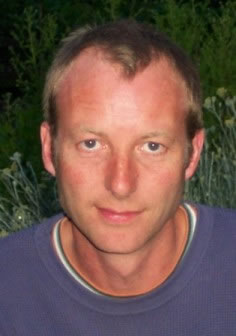What is water and what does it do? In its most simple form is a molecule formed from 2 atoms of hydrogen and 1 of oxygen. At room temperature it is found in liquid form. It is essential to life. If there is no water on a planet then there will be no life there.
Most school children can tell you all this as it is common knowledge as is the fact that humans are about 80% water.
Water is found in all living things. Life is movement and is epitomised by water in a constant state of motion and transformation. Flowing as water, sap or blood, this life molecule is the creator of the myriad life-forms on this planet.
However water is a much more fascinating substance. As a liquid, the behaviour of water differs from all other fluids. While all fluids become consistently and steadily denser with cooling, water, alone reaches its densest state at a temperature of +4 Celsius. This is the so-called 'anomaly point,' which is decisive in terms of its potency and has a major influence on its quality. Below this temperature it once more expands. This anomalous expansion below +4 C is vital to the survival of fish life, for as the water expands and cools further it eventually crystallises as ice at 0 C, thus providing a floating, insulating sheath, which protects the aquatic life underneath from the harmful effects of severe external cold in winter. Water also has unique qualities of electrical and thermal conductivity which cause it to be supportive of life processes.
In the human body water not only forms the basis of blood but also is the main constituent of lymph which bathes all the cells, and of the inside of cells. Imagine each cell as a water filled balloon with the pressure of the water inside being what gives the cell its shape and form. If one further imagines a larger bag of water filled balloons with water surrounding them one is getting closer to an idea of organs in the body. But what if the balloons start to leak and the water runs away. Unless drastic action is taken the balloons will loose their shape and size (and function). This can happen in the human body but usually when we become dehydrated the body has an emergency tactic to stop water loss. This is to produce a waterproofing barrier around the cells and is called cholesterol!
This substance is usually thought of as being very damaging but it seems that no-one has much thought about why the body makes it in the first place. As an emergency protective layer against dehydration it works well but it is not good to have around long term when it leads to thickening of arteries and blood vessels. The way to combat cholesterol is to rehydrate the body by drinking lots of water so that there is no longer a need to produce it.
The cholesterol waterproofing around cells has other untoward effects besides that on arteries. It also limits the transport in and out of the cells of nutrients and waste products producing stagnation and putrification. At the center of nearly all chronic health problems is a situation of dehydration. Once the flow of water is re-established cells can function once more. So how do we become rehydrated and stay rehydrated? Not by drinking coffee and tea. These fluids do contain water but are diuretics and cause the body to loose water exacerbating the dehydration state. Other fluids like fruit juice and squash are treated like food by the body and do not help to re-hydrate. What is really needed is water - at least 4 pints a day and more in hot weather. Water is a free medicine that can help in the treatment of asthma, arthritis, allergies, hypertension, high cholesterol, ulcers, digestive disorders, obesity, constipation, depression and many more.
Do you drink your 4 pints a day?
Helen Cranston
(Nutritional Therapist)
References:
Your body's many cries for water Dr Batmanghelidj
Living Energies Callum Coats
Subscribe to:
Post Comments (Atom)




No comments:
Post a Comment